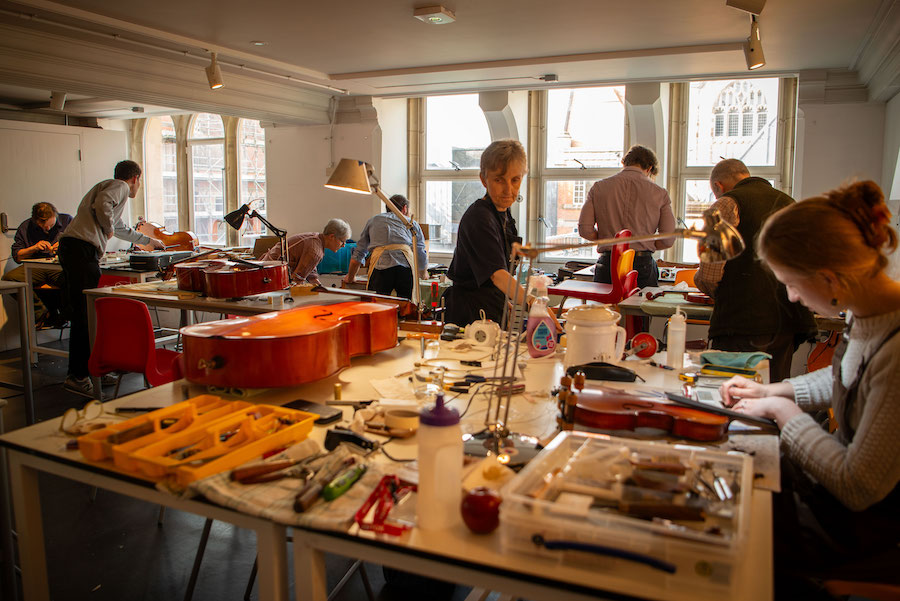All you need to know about the historic Bee Network launch
- Written by Thom Bamford
- Last updated 2 years ago
- City of Manchester, Community
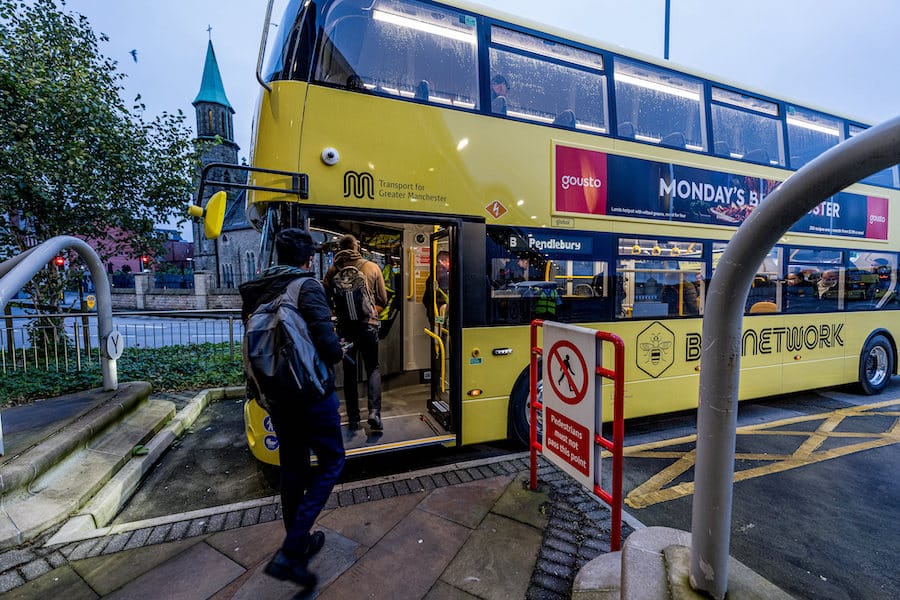
There’s a new buzz in the city – and it’s not just the whirring of electric engines.
It’s more than just a change in the daily grind; it’s a cultural shift that’s putting the Mancunian spirit back into public transport.
Welcome to the dawn of the Bee Network era, where Manchester’s buses are making headlines once again.
Hopefully for the right reasons this time..
This revolutionary initiative marks a historic turning point, bringing back local control over buses, and promises a brighter future for commuters.
In a historic moment, the inaugural bus in England to return to public control since the 1980s rolled out of its Bolton-area depot with clock-like precision at 4.30am.
For one passenger, none other than Mayor Andy Burnham, this marked the commencement of what he described as “a new era” for public transportation.
The debut service, a route numbered 521, commenced its journey from Farnworth to Westhoughton.
Mayor Burnham hailed this moment as a “coming-of-age milestone” for English devolution, highlighting the transformative impact it promises for the world of buses.
The streets of Greater Manchester bore witness to this revolution as a vibrant fleet of electric double-deckers, resplendent in bright yellow, fanned out across the city on a monumental Monday morning.
Reversing the Thatcher Era: Restoring Control
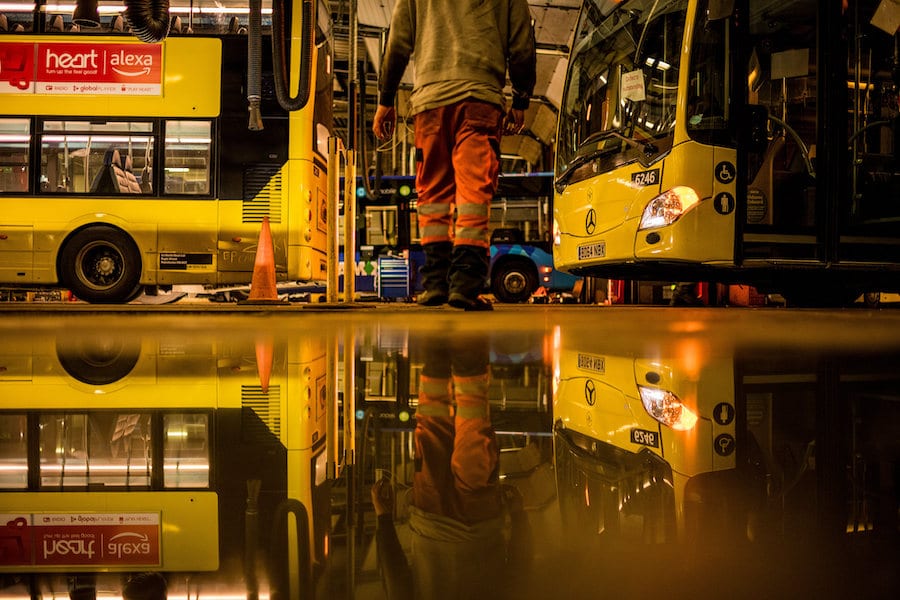
The Bee Network’s significance lies in its reversal of the deregulation that swept through England in 1986.
Under Margaret Thatcher’s leadership, buses were privatised, leaving many local authorities powerless over their bus services.
Greater Manchester bore the brunt, with dwindling passenger numbers.
Since the legislation, passenger numbers in Greater Manchester dwindled from 355 million per year in 1986/7 to 182 million in 2019.
In contrast, London, which retained control, saw its number of commuters double.
Local Power for Better Services
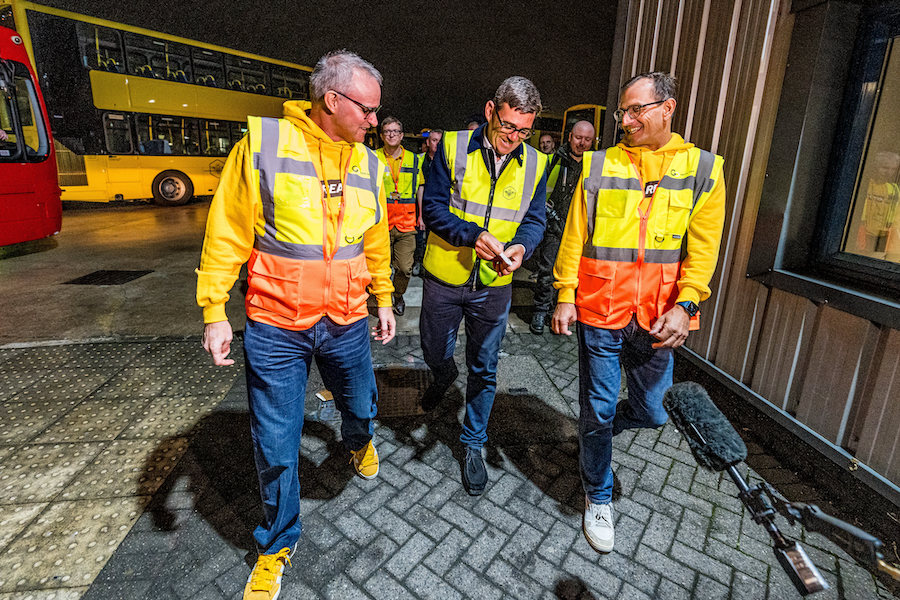
Mayor Andy Burnham, the driving force behind the Bee Network, predicts cheaper fares and more efficient, reliable services.
This locally controlled initiative is a “coming-of-age moment for English devolution,” according to Manchester’s Mayor, putting power back into the hands of the people.
The Fleet’s Grand Debut
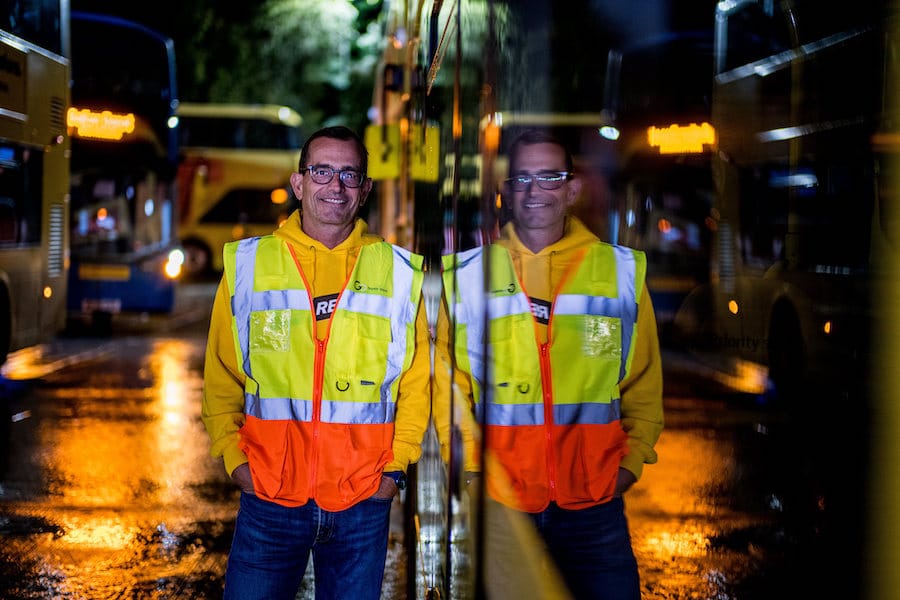
The Bee Network’s fleet is making a grand entrance, starting with around 100 eye-catching yellow buses and 50 eco-friendly electric buses in Bolton, Wigan, Salford, and Bury.
With plans to roll out the rest by 2025, the aim is to have approximately 500 buses in operation by 2027.
A Greener Tomorrow
Transport for Greater Manchester estimates that the electric buses will reduce carbon emissions by a staggering 1.1 million tonnes, paving the way for a zero-emission bus fleet by 2032.
A ‘New Dawn’ for Public Transport
The first bus brought back into public control since the 1980s signalled a “new dawn” for public transport in England.
Mayor Burnham hailed it as a “revolution” for buses, as a fleet of bright yellow electric double-deckers fanned out across Greater Manchester.
Solving Commuter Woes
For years, commuters in Greater Manchester wrestled with a web of private companies running outdated services at higher fares.
The Bee Network addresses this problem head-on, with local politicians now overseeing the bus network in several areas, providing seamless travel experiences.
A Beacon of Hope for England
The success of Burnham’s ambitious plan could set a precedent for other regions across England to introduce their publicly-owned franchises.
The ultimate goal is to boost commuter numbers and keep fares affordable, solidifying a lasting legacy for Greater Manchester.
The mobilisation of the new buses marked a culmination of months of preparation by a team of 600 people at Go North West, which won the first two contracts to operate Bee Network buses.
Go North West’s parent company, The Go-Ahead Group, deployed bus drivers from across the UK to help with this weekend’s launch.
Nigel Featham, Managing Director, Go North West, said: “It’s been a real pleasure to welcome the first customers on board our Bee Network buses – the response we’ve had from the public today has been terrific.
“We’ve been preparing for today’s launch for many months and it’s fantastic to see the buses out on the road. This is, of course, only the start of the Bee Network and there is a lot of work still to come. But our goal is to work with the Mayor to deliver world-class transport for a world-class city, Manchester.”
Following the launch of the Bee Network in Manchester, Graham Vidler, CEO of the Confederation of Passenger Transport, the trade association for the UK’s bus and coach sector, said: “Operators are working hard with the Combined Authority to make a success of the new bus network in Manchester. Buses account for three-quarters of all public transport journeys in Greater Manchester and there’s room to grow the role of bus even more.
“The launch of the Bee Network is just the start. We also need a package of bus priority measures which reduce congestion, speed up journey times, keep fares low and ensure buses are reliable – factors we know are important for passengers.
“The industry looks forward to working closely with the Combined Authority and the Mayor to ensure passengers reap the benefits of improved bus services.”
Join the Bee Network Buzz
Greater Manchester’s Bee Network promises not just efficient travel but a greener, more community-oriented future.
So why not join the buzz, and be a part of this transformative journey towards a brighter tomorrow for public transport in our beloved city.
- This article was last updated 2 years ago.
- It was first published on 26 September 2023 and is subject to be updated from time to time. Please refresh or return to see the latest version.
Did we miss something? Let us know: press@ilovemanchester.com
Want to be the first to receive all the latest news stories, what’s on and events from the heart of Manchester? Sign up here.
Manchester is a successful city, but many people suffer. I Love Manchester helps raise awareness and funds to help improve the lives and prospects of people across Greater Manchester – and we can’t do it without your help. So please support us with what you can so we can continue to spread the love. Thank you in advance!
An email you’ll love. Subscribe to our newsletter to get the latest news stories delivered direct to your inbox.
Got a story worth sharing?
What’s the story? We are all ears when it comes to positive news and inspiring stories. You can send story ideas to press@ilovemanchester.com
While we can’t guarantee to publish everything, we will always consider any enquiry or idea that promotes:
- Independent new openings
- Human interest
- Not-for-profit organisations
- Community Interest Companies (CiCs) and projects
- Charities and charitable initiatives
- Affordability and offers saving people over 20%
For anything else, don’t hesitate to get in touch with us about advertorials (from £350+VAT) and advertising opportunities: advertise@ilovemanchester.com
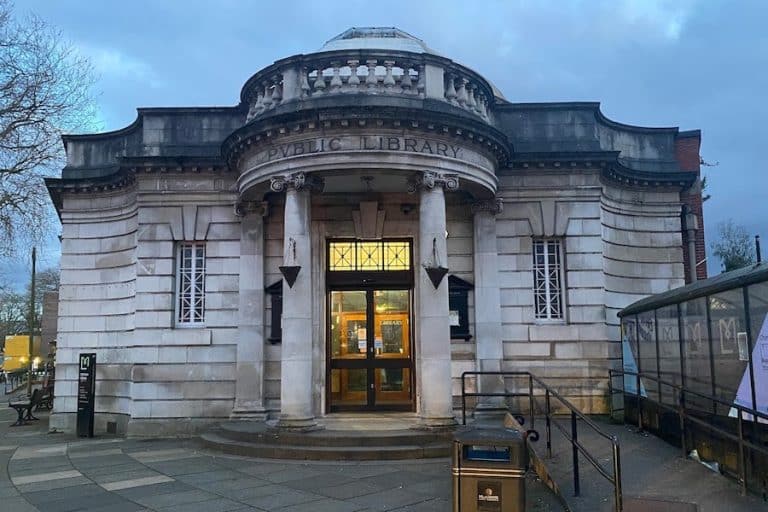
Chorlton Library gets a stunning renovation unveiling hidden treasures

How one selfless act sparked a career dedicated to saving lives
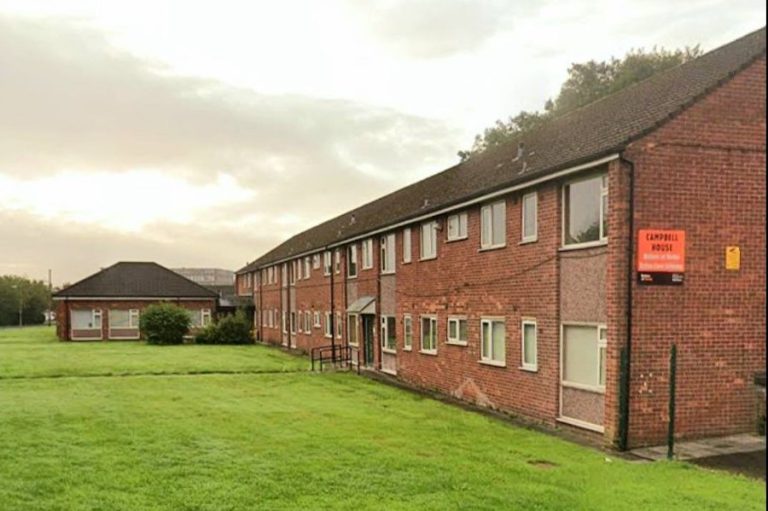
Former sheltered housing transformed into safe haven for vulnerable youth


Manchester and Los Angeles prove that opposites really do attract







